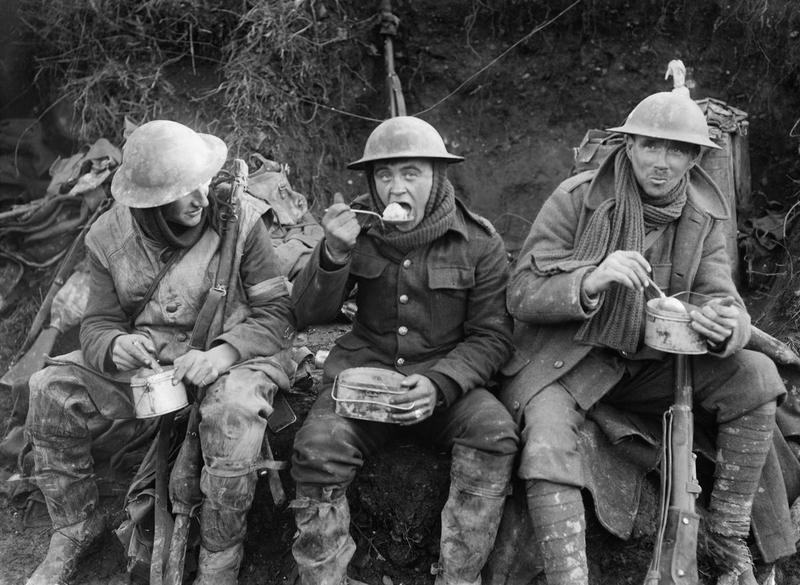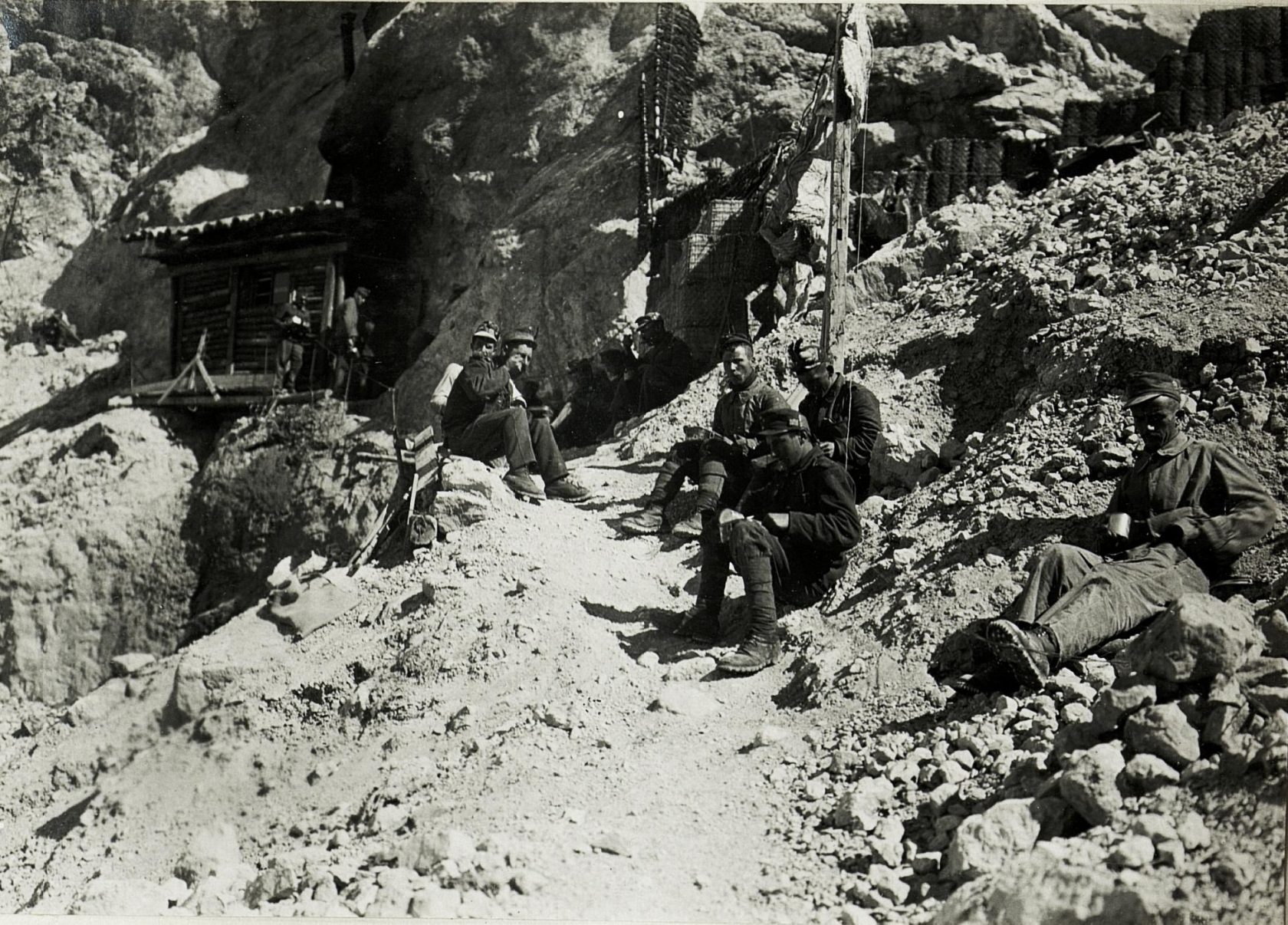What did the soldiers eat during WWI? The answer can vary a lot depending on time, place and the army in which the men were enlisted. In Stimmen aus den Schützengräben #15 we try to give a first impression on this topic with some original documents relating to the year 1917.
The first witness of the week is Captain Howard B. Ward, of the British army (see episodes #2 and #14). In an original recording he explains what British soldiers ate in 1917 on the western front and how the food was brought to the first line. The field kitchen was situated about 50 yards behind the line, and the cooks prepared the same meal more or less everyday: meat, potatoes, sometimes potatoes and cabbages, bread and margarine, sugar, bacon and cheese. Soldiers lived and ate by night, and “everything happened by night”; the day was mostly spent sleeping. Each soldier had a mess tin in which the stew was poured. By day the soldiers could only eat some bread with cheese or bacon, but Howard states that the food was overall “not too bad”. The full recording is available at: http://www.europeana.eu/portal/record/2020601/attachments_66347_4980_66347_original_66347_mp3.html

British soldiers eating hot rations in the Ancre Valley during the Battle of the Somme, October 1916 (Imperial War Museums)
The second witness of the week is German soldier Johann Görtemaker (see episodes #5, #12, #13 and #14). On the 1st of April 1917 he wrote a letter to his parents from Belgium, in which he describes the food ration of a German soldier on the western front: a hot lunch everyday, and every two days a 3 pound bread (about 1,4 Kg), butter and marmalade. Görtemaker writes: “even if it’s definitely not much, it’s still enough”. The letter provides additional information on food shortages among the civilians: “the fact that the food becomes scarcer and scarcer is maybe the saddest thing in this war. As a soldier, one does not notice it…”. Food was saved for the soldiers on the front line, and eventually the Central Powers run out of supplies. Towards the end of the war, both soldiers and civilians were literally starving. The lack of flour was compensated by adding sawdust and straw to the bread, and the broth was less and less nourishing. The lack of hygiene and poor storage conditions were also lessening the food’s quality. The full transcription of Johann Görtemaker’s letters is available at: http://www.europeana1914-1918.eu/de/contributions/462

The last witness of the week is Italian Lieutenant Paolo Caccia Dominioni, who wrote a war diary later published under the title: “1915-1919. Diario di guerra“. The entry dated 20th of September 1917 provides us with interesting information on the organisation of the Italian army and the food on the Karst Plateau front. The soldiers were given every day a disgusting broth with rice, and they started protesting. After being cooked, the rice was carried on muleback for two hours and when it reached the trenches it looked like a disgusting white jelly. Caccia Dominioni sent an order to the kitchens asking to prepare the broth without the rice, and thus managed to appease the soldiers. The rice, however, was still a problem. The Army was bound by a contract and it was not possible to terminate it. The bags were piling up in the warehouse, and there was no way of getting rid of them. Caccia Dominioni tried to ask permission to sell the rice to the civilians, and use the money to buy better food for the troop. He was harshly rebuked by his commanding officer, and told it was against all rules of the Army. He was then suggested to use the rice to feed some mules, which he did, and for a while everybody was happy. However, Caccia Dominioni reports in the following entry of his journal that the mules, only fed with rice, got sick and died.
-Credits-
Editing: Larissa Schütz , Matteo Coletta.
Commentary: Matteo Coletta
Voices in this episode: Hannes Hochwasser als Johann Görtemaker, Matteo Coletta as Paolo Caccia Dominioni, Howard B. Ward as himself.
Jingle:
Music: Gregoire Lourme, “Fire arrows and shields”
Concept: Matteo Coletta
Voices: Hanes Hochwasser, Matteo Coletta, Roman Reischl, L.J. Ounsworth, Norbert K. Hund.
